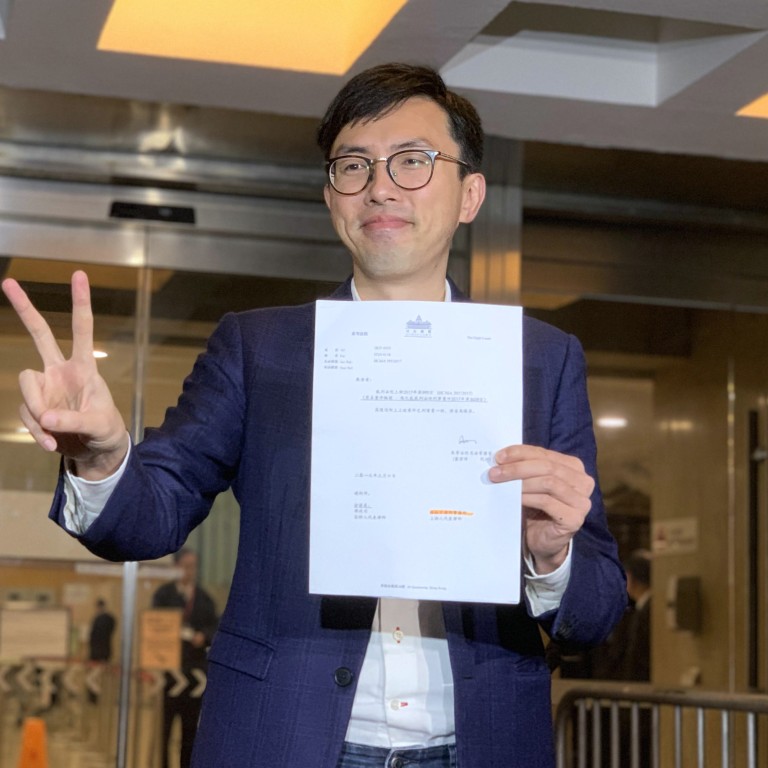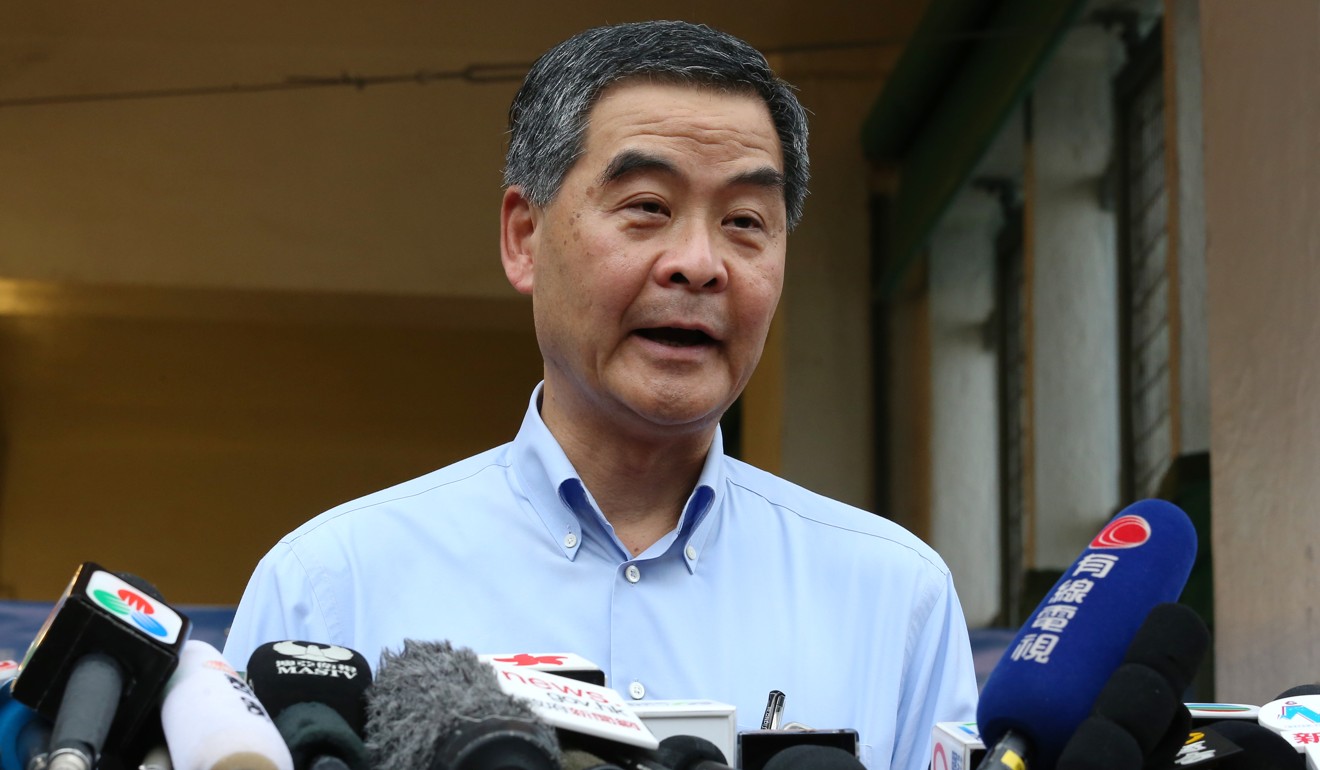
Hong Kong democracy activist who threw sandwich at former leader Leung Chun-ying but hit police officer has conviction quashed
- Judge says prosecutors had sufficient evidence to prove Leung was a victim of assault
- But they instead brought a case alleging a nearby police officer was the victim, and the resulting conviction was ‘unsafe’
A democracy activist jailed for throwing a tuna sandwich in the direction of former Hong Kong leader Leung Chun-ying has won an appeal against his conviction.
A judge on Wednesday questioned the decision by government prosecutors to bring an assault case against activist Avery Ng Man-yuen that alleged a police officer nearby Leung at the time was the victim. He said they instead should have laid a charge alleging the victim was the former chief executive.
The subsequent conviction was “unsafe”, the judge said.
League of Social Democrats chairman Ng, 42, was sentenced to three weeks in prison in 2017 for common assault against officer Lau Wing-kwan. Ng’s sandwich missed the intended target of Leung and instead hit Lau on September 4, 2016.
But Mr Justice Joseph Yau Chi-lap on Wednesday quashed the activist’s conviction and sentence after pointing out that prosecutors had possessed ample evidence to prove Ng assaulted the former chief executive but did not present their case accordingly.

Instead they set out to prove Lau was the victim, for which the judge on Wednesday said they did not gather enough evidence.
“If prosecutors made this decision to avoid summoning Leung Chun-ying as a prosecution witness because he was chief executive at the time … then the authorities have made a prosecutorial decision that appears to defy common sense,” the judge said. “This practice is obviously debatable and upsetting.”
Outside court after the ruling Ng said: “This is just another example of the Department of Justice using its power to prosecute political opponents.”
A department spokesman said prosecutors had considered their Prosecution Code, the applicable laws and the police investigation report before laying out the charge in a “fair and just” manner, but they would study the judgment to decide if any follow-up action was needed.
“The prosecutors in the Department of Justice have long abided by the Prosecution Code and upheld the principle of prosecutorial independence,” the spokesman said. “The social origin, official or other position in the community of any person involved or concerned in a case will not influence prosecutors in making prosecutorial decisions.”
Leung’s office did not respond to inquiries from the Post.
Ng was the second democracy activist prosecuted for assaulting the ex-chief executive during protests.
His former party colleague Wong Yuk-man was handed a jail term in 2016 for hurling a glass at Leung in the city’s legislative chamber in July 2014. But the radical activist had his conviction similarly quashed by the High Court last year after a judge found concerns expressed by Leung about possible injury “unreasonable and inherently improbable”. In that case, Leung did testify for the prosecution.
Three weeks’ jail for Hong Kong activist behind sandwich attack on former leader CY Leung
Loud cheers and applause erupted in court on Wednesday as Ng left the dock.
“What happened?” he said, grinning.
His defence counsel Douglas Kwok King-hin had argued at appeal that the trial magistrate had been wrong in dismissing Ng’s claim that the activist genuinely believed a “very smug” expression on Leung’s face had been an invitation from the chief executive to throw the sandwich at him.
That argument was dismissed by Yau, who found Ng had undoubtedly committed common assault against Leung. However, prosecutors would have needed to prove the police officer bore the effect of the assault in order to find Ng guilty in the present case, the judge added.
“The sandwich would have had to ... cause [Lau] to worry that he might be exposed to immediate and unlawful use of force,” the judge said.
But Yau noted that Lau had never mentioned any concern about being hit when testifying. In news footage the officer continued to walk calmly after his hand was struck by the sandwich, the judge said.
The lower court magistrate had not considered this, Yau said, and he concluded: “The court finds the appellant’s conviction unsafe.”

